By focusing on emerging and next-generation technologies, Jennifer Namvar, Capture Director for Leidos, has become the best of the best at what she does. With 16 years of experience in all phases of the federal government business development life-cycle, she is someone you want to learn from. Jennifer Namvar has worked for some of the DoD’s Top 100 list companies and has closed more than one billion in new and re-compete business.
With so much knowledge to offer, we decided to break this into two parts.
Part 1, focused on proposal writing assistance and how-to effectively execute the process as a small-business. Here on Part 2, Jennifer Namvar will take us a little into a Capture Manager’s World and how small businesses can benefit from this insider knowledge.
CAPTURE MANAGER INSIGHT
According to Namvar, there are key areas that capture managers will always focus on.
- Customer engagement
- “The more customer intimacy that you have, the higher your win probability will be on your opportunity that you’re working.” -Jennifer Namvar
- Teaming
- “For a particular opportunity, usually one company doesn’t do the whole thing themselves. They bring a team of other companies.” -Jennifer Namvar
- Solutions
- “How do you bring a differentiated solution?” -Jennifer Namvar
Some of the questions Capture Managers ask throughout these three stages include, “Who are you going to call in, in a government? What are the requirements this customer’s looking for? Which ones does my company do best? Are there small business requirements? Which small businesses would be a good fit for this contract? How do you put together a differentiated solution that’s not something your competitors are going to put together?”
That’s a lot of information.
Because of this, you’re probably wondering do larger organizations work less with small businesses?
They do!
According to Namvar, “A lot of the RFP’s that come out will have a small business requirement as part of them.”
Through the teaming stage, they have to put together a winning team. “If that includes 40% of my subtracted dollars go to small businesses, I have to figure out which small businesses I need to bring on my team.”
HOW IS THIS DONE?
- They look at small businesses that they’ve successfully partnered with in the past.
- They look for a specific socioeconomic category
- For example, a woman-owned small business, service-disabled small-business, veteran-owned small business, etc. and how their company meets the areas of the statement of work.
- Customer Relationships
HOW CAN YOU DISTINGUISH YOURSELF AS A SMALL BUSINESS?
One word. Relationships. Relationships. Oh yea, relationships! Okay, that was technically three or five, but that one word is key!
“This is the advice I always give to small businesses. I think that this is a relationship-based business, and the best thing you can do is nurture a relationship with the decision maker in one of these large businesses,” states Namvar.
Having lunch with them, reaching out to them and nurturing the relationship, are all ways Namvar advises you begin building and growing your connections. That way, when a contractor is coming out and needs to fulfill a requirement, you are at the top of their mind.
“It could be someone from the contract side, you might want to work that angle, but you might want to consider also working the angle of someone who is dealing with a large volume of proposals that they have to deal with. Whether, it’s a business development person or a capture manager who’s working a few different deals.”
Secondly, Namvar advises bringing your client relationships to the primes.
“So if you can nurture some customer relationships, in the same way of customers you would ideally want to work with, you can say, ‘Hey, I can make an introduction to customer so-and-so and I hear that this opportunity’s coming out. You would be a great fit for a prime and we would love to partner with you on it.’ That’s a slam dunk way to do it, in my opinion. That’s how I would do it if I were a small business.”
How do you get these relationships you might ask?
Word of mouth, networking events and even LinkedIn.
MISTAKES SMALL BUSINESSES MAKE
During the process of building relationships, there are mistakes that can be made. Do not just invite these new connections to have lunch with you.
When you contact them, Jennifer Namvar advises sending a message that is detailed but quick. In the message, articulate your value, bring a customer into the picture, identify an opportunity they may or may not be aware of and ask for a brief 15-minute call.
Another mistake, becoming too tactical. Don’t get so tactical as a small business, that you forget to have a process.
“I think that most small businesses use the excuse that ‘hey, we’re a small business, so we can’t have a process, so we can’t have a strategy.’ Instead of having a strategy of, ‘Okay, this year I want to go… These are the accounts that I want to focus on or these are the customers I want to focus on and these are the opportunities at the beginning of the year, and build a pipeline. I see them more waiting for the… chasing the next shiny object or waiting for the next opportunity and completely overextending themselves and not actually engaging with customers or engaging with those partners that they can work with.”
As she says, “Don’t go wide instead of deep.”
LAST PIECE OF ADVICE
Finally, we leave you with some encouragement from Jennifer Namvar herself.
“If you’re afraid of that and you don’t put your art out into the world, then no one gets the benefit of it…You can’t please everyone all the time. But there are going to be some people out there who really like what you put out there, who really like your company, who have jobs because you created a company. And none of that value would exist if you’re too scared to put it out there.”
To hear more, join the GOVCON GIANTS Podcast Community available on Spotify, Apple Podcast, Google Play, Stitcher, and iHeart.
To learn more about Government Contracting, subscribe to the GOVCON GIANTS YouTube Channel.
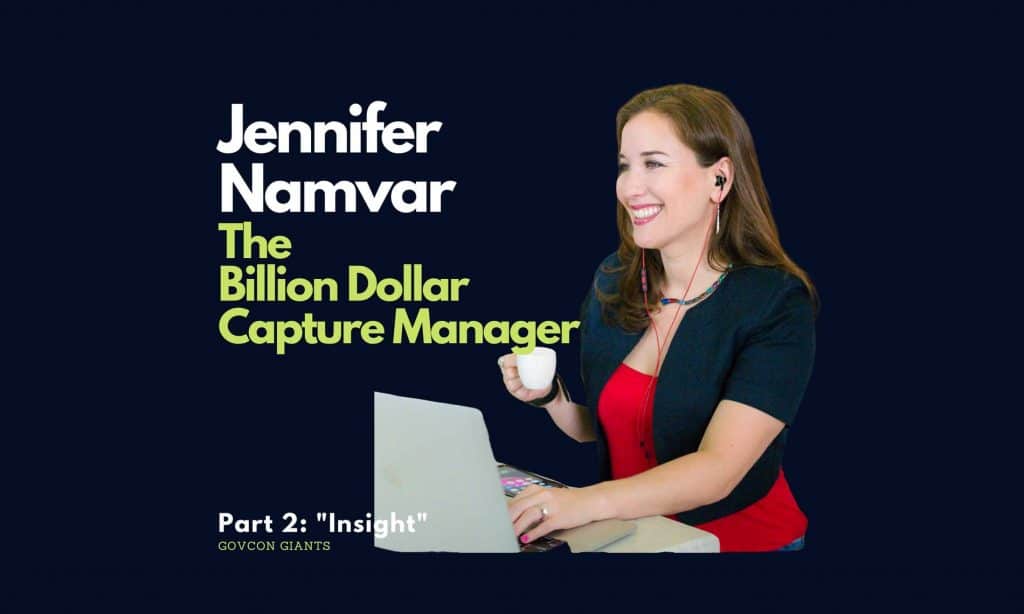

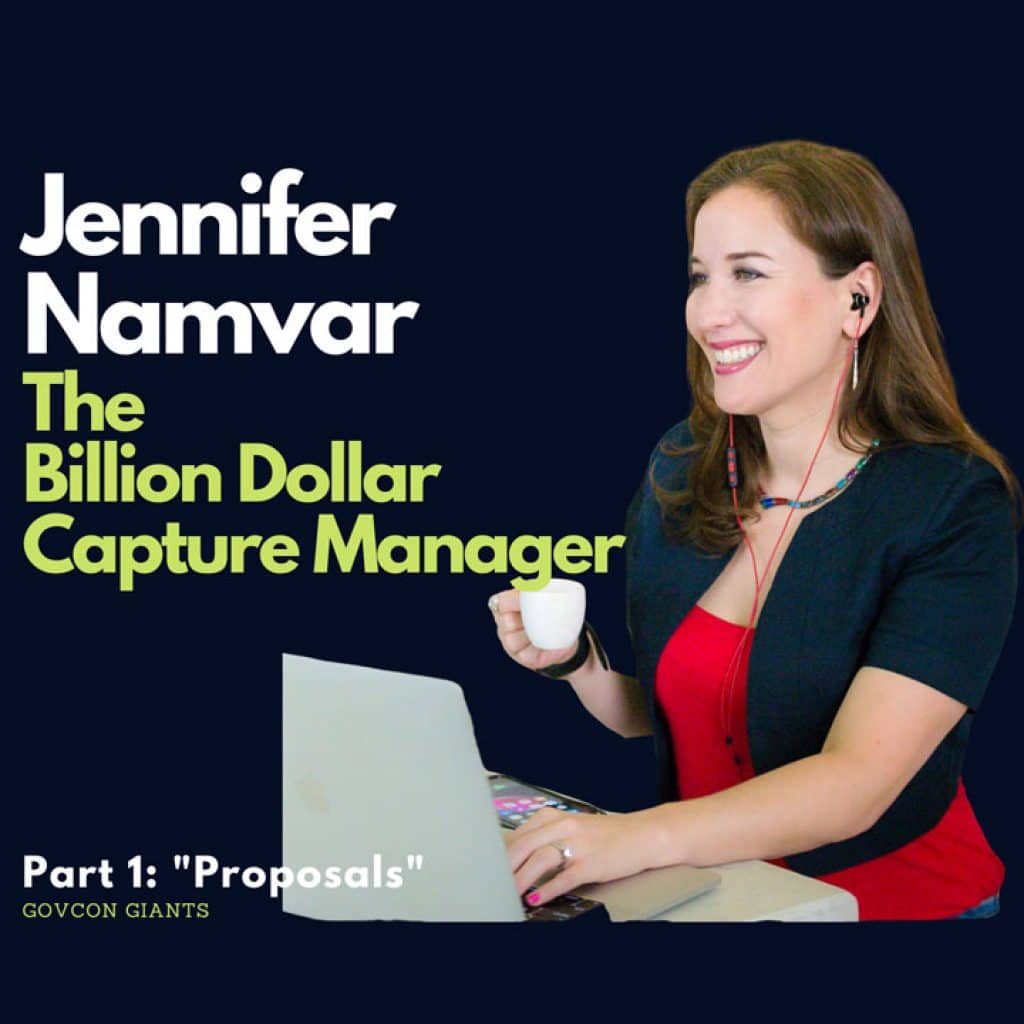
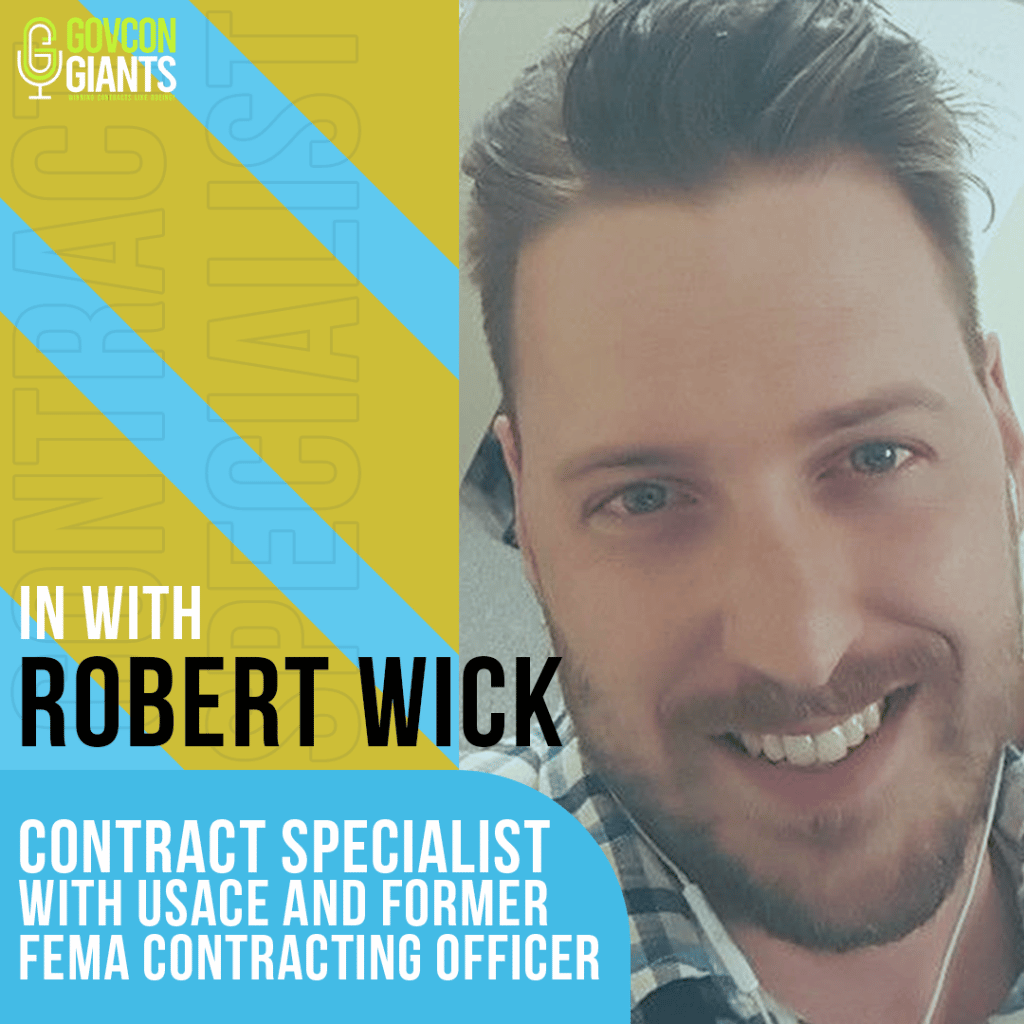


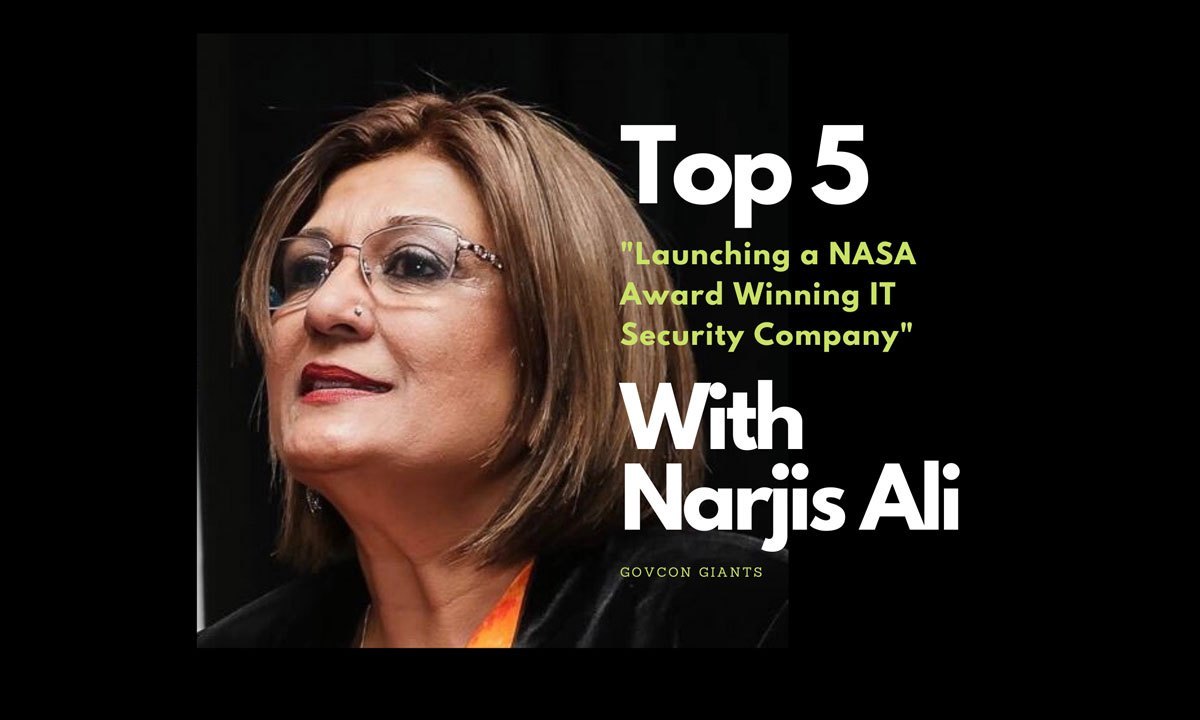
 “The most important thing was that we want to take people that matter, to places that matter…I think that means the world to me. When I see people that we’ve been trying to grow, grow and go to places.”
“The most important thing was that we want to take people that matter, to places that matter…I think that means the world to me. When I see people that we’ve been trying to grow, grow and go to places.”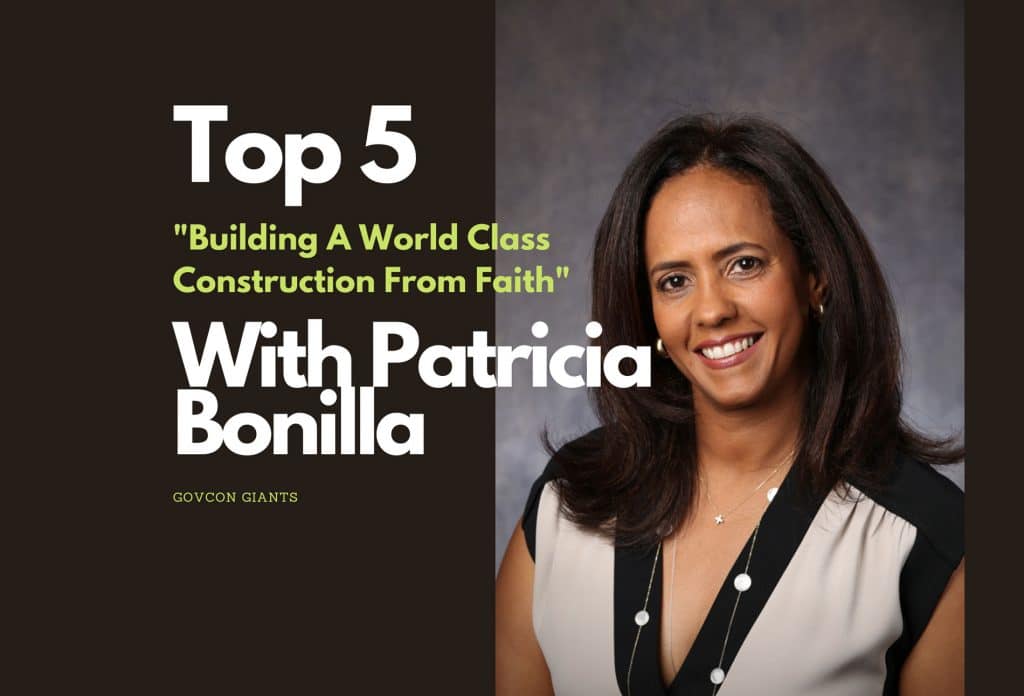



 This is something we should all be reflecting on daily. How to evolve and adapt just as nature does. Learning, growing, analyzing, refocusing and restructuring, in order to turn things around in our lives. If you are an entrepreneur and/or will be working in federal contracting, this is key to the foundation of your business and your well-being.
This is something we should all be reflecting on daily. How to evolve and adapt just as nature does. Learning, growing, analyzing, refocusing and restructuring, in order to turn things around in our lives. If you are an entrepreneur and/or will be working in federal contracting, this is key to the foundation of your business and your well-being.
